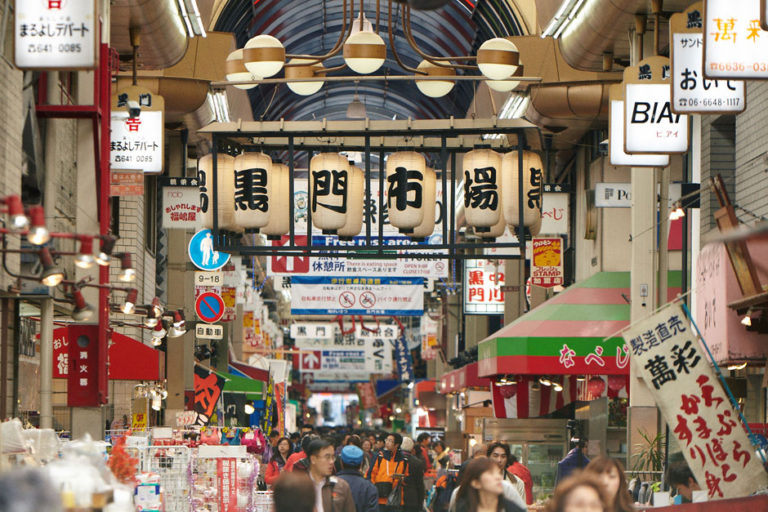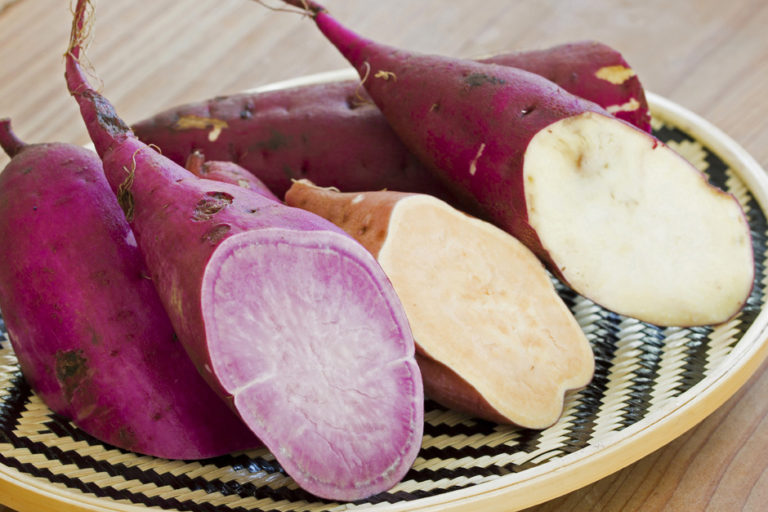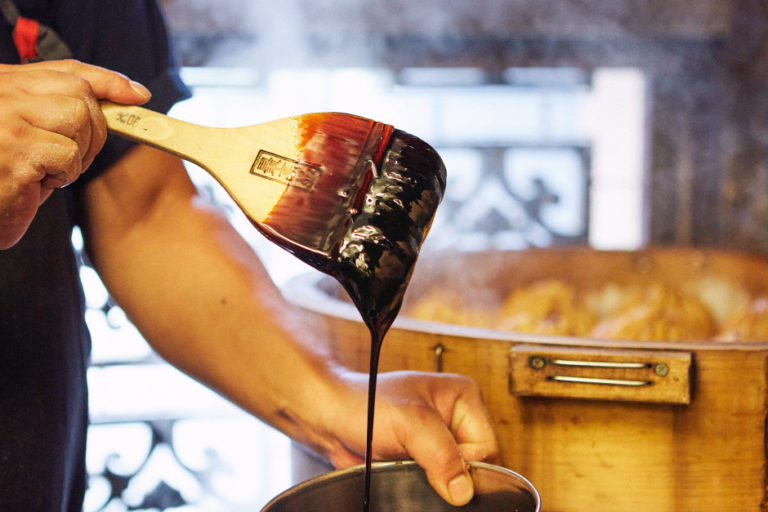Farmers Join Forces to Pioneer the Future of Farming
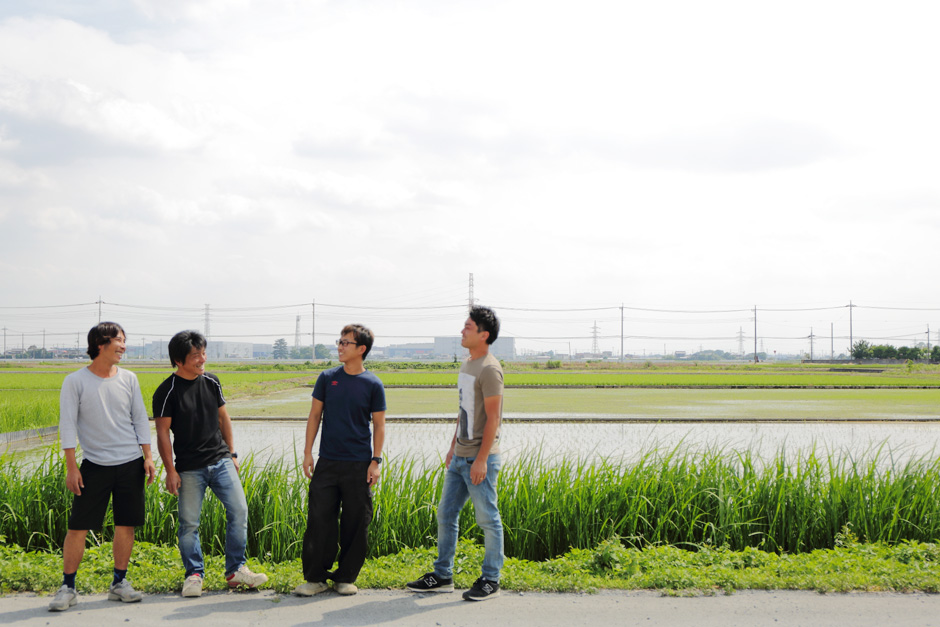
Young farmers gathering beyond the boundaries of their product category
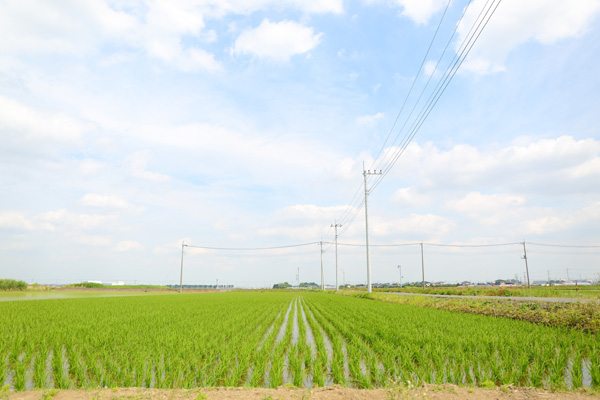
Kazo is not immune to the recent problems of aging and a declining farming population, but young farmers from Kazo united and launched Young Noman KAZO. Members of the group include successors of local farms as well as the staff of agriculture companies, all proactively working to boost local agriculture.
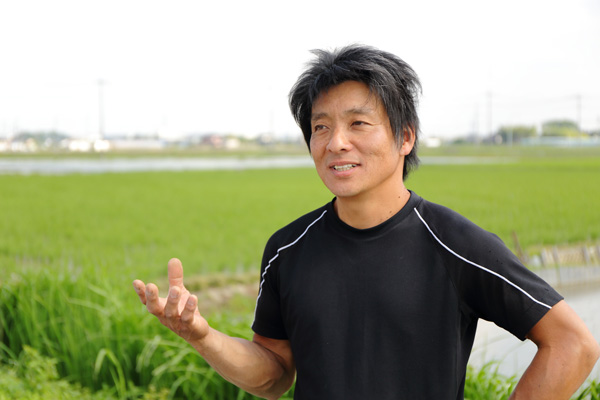
“Anyone can join us as long as they live in Kazo and are involved in agriculture,” says founder Yoshichika Hayakawa.
Hayakawa is a farmer who mainly produces and sells rice. He accepts anyone into the group as long as they are involved in agriculture and are passionate about boosting Kazo’s agriculture. There are also no rules about what products they grow. As a result, the group has attracted a wide range of producers who grow and raise such products as rice, cucumbers, tomatoes, Chinese lettuce, livestock and flowers.
Strong partnership makes the impossible possible
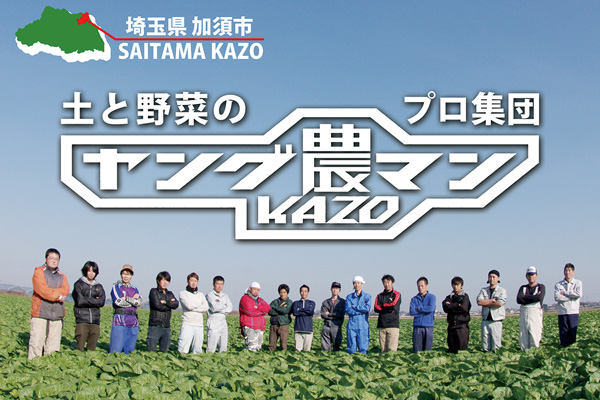
The members of Young Noman KAZO always meet once a month to exchange ideas on the local agriculture. Their activities are not confined to Kazo either; once or twice a year they visit farmers outside the prefecture for training, or visit farming recruitment fairs in Tokyo. The members also actively exchange ideas, creating an environment where they inspire each other and grow together.
“When I hear about other products that are grown using totally different methods from mine, it is extremely interesting. All the members are using creative ideas to grow more and tastier products, so it is inspiring,” says Hayakawa.
The truth is, before Young Noman KAZO came about, there was no relationship in Kazo between different youth chambers and other associations. Even when farmers got together, it was a gathering of cucumber farmers, or tomato farmers, producing the same products but never cross-category and farmers were feeling quite lonely.
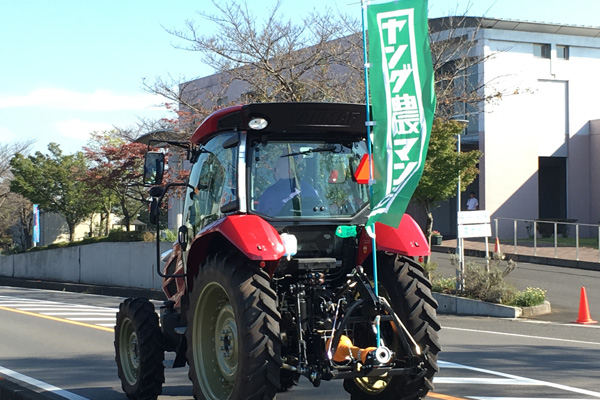
Under these circumstances, Hayakawa and his friends asked the city office to create a name list. Creating this cross-category relationship undoubtedly broadened their potential. The producers are now connected, building on each other’s network and experience, proactively participate in local events to promote their products from Kazo and provide vegetables they have grown to restaurants run by livestock farmers pursuing other business formats. There are even new initiatives underway for recycled farming, such as rice farmers using manure from livestock farms to improve their soil quality.
Sharing information to raise experience level
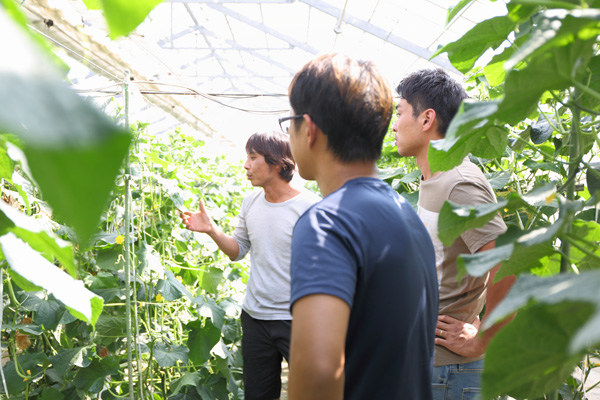
“Going forward we would like more young people to join us,” says Hayakawa. Energy from young farmers is vital in farming, which requires much stamina. But he expects more from young farmers than just physical strength.
“Young people are flexible in their way of thinking and are also quick to adopt new ideas. They also share that information without keeping it to themselves. For people above our generation, it was normal not to teach their know-how to others. But now, it is important to take in anything that is useful.”
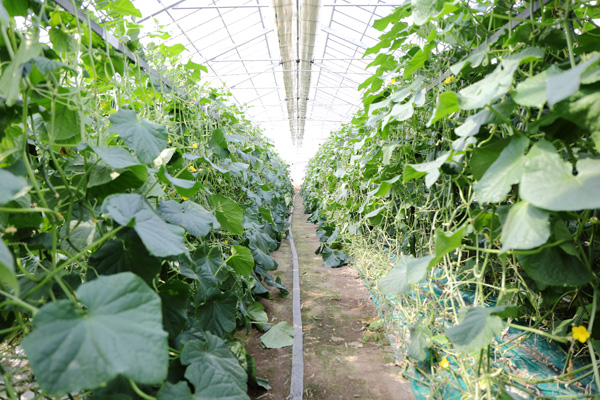
Apparently, they succeeded in improving their products significantly after they started exchanging ideas.
“In farming, knowledge is important, but experience also speaks volumes. Even if you come across a good idea, you can only test it once a year. That is why it is important to share many people’s experience.”
Kazo’s cucumbers at peak season
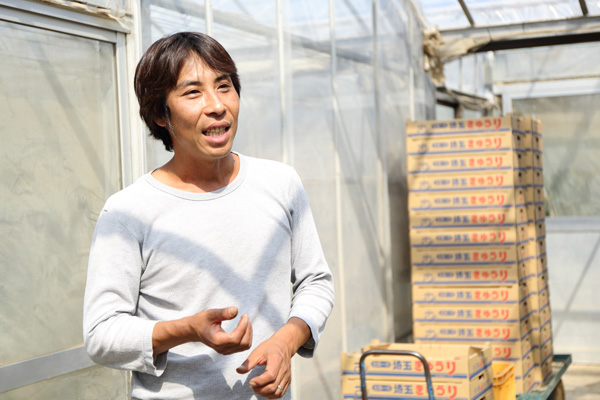
We visited the vegetable farm of Yoshiyuki Tajima, a cucumber farmer and current chairman of Young Noman KAZO, where cucumbers were hitting their peak season.
According to Tajima, Kazo’s cucumbers are highly rated in the market because they are very crispy and wonderfully aromatic, thanks to the big temperature difference between day and night and because of the rich soil with an ample water supply. The cucumber farmers are also closely connected. They visit each other’s farm eight times a year to study each other’s farming methods and frequently exchange ideas on the materials and chemicals they use, among other activities.
“You may think cucumbers are just cucumbers but how they are grown is totally different depending on who grows them. Different varieties also require very different, strict methods, so it is very useful to learn how other people grow their cucumbers.”
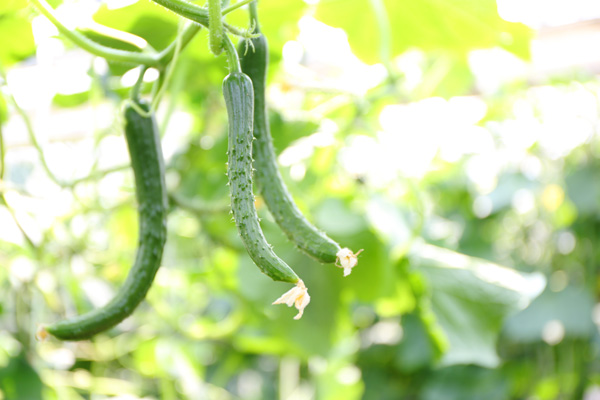
Kazo’s incomparable strength is that it is close to cities and its products can be delivered to the metropolitan area while fresh. Cucumbers harvested early in the morning can be displayed in stores only half a day later.
“Freshness is the key to good taste. When you choose vegetables, I would encourage you to check where they came from. It would be good if people living in the Kanto area understood the vegetables are grown so close to them,” says Tajima.
“For some time, people have had the notion that farming is not profitable, but the members of Young Noman enjoy farming and they are also proud of it. It would be great if someday people see farming as a natural job option through our initiatives.”
Young Noman KAZO’s products are available at supermarkets in Tokyo. We invite our readers to check the origins and savor their fresh taste.
Cucumbers from Kazo
Source:Yoshiyuki Tajima, cucumber producer and current chairman of Young Noman KAZO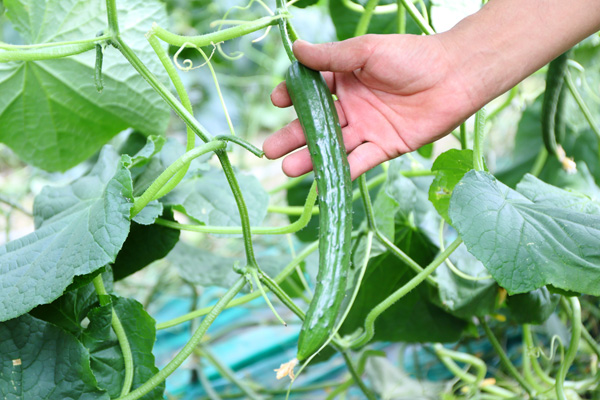
Peak Season
・March to June (if grown in Kazo)
Tips
・Good cucumbers retain flowers
(Generally, when the cucumber still has a flower intact, it loses its freshness very quickly, so the flower is a sign the cucumber was freshly picked)
・The cucumber has very prickly protrusions on the surface
・The cucumber is shiny
・The cucumber was grown somewhere close by

